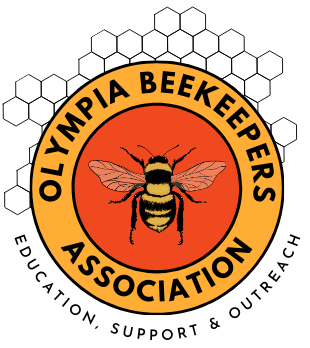In spring of 2016, two honey bee hives were installed on the grounds of the Governor’s mansion in Olympia. Both hives began collecting pollen and nectar from local blossoms, carrying it back to their new “homes.” As the Olympia Beekeepers Association project team continued to check on their progress, one of the hives demonstrated signs (more…)
Where? Traditions Cafe, 5th and Water St, downtown Olympia When? Monday Oct 24, 7 pm Pollinators play a significant role in successful crop production. Research suggests that native pollinators are responsible for a larger percentage of crop success than had long been supposed. Modern agricultural practices can disrupt native pollinator reproduction. Eli Bloom, a WSU (more…)
Two hives were placed on the front lawn of the Governor’s Executive Residence at the Washington State Capitol and honey bees installed on April 20, 2016. The project, a collaboration between the Olympia Beekeepers Association and the Washington Department of Enterprise Services will help raise public awareness about the decline of bee populations, our dependence (more…)
Installation of stand and hive boxes was completed today by the OBA’s Capitol Bee Team. The new buzzing residents at the Governor’s Mansion will officially arrive on April 20th. The OBA is thrilled to be collaborating with Governor and Mrs. Inslee and the Department of Enterprise Services at the Capitol on this project.
